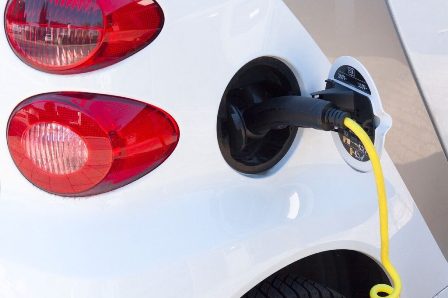ANDREW ROGERS
You only need to look back over the last decade to see how far EVs have come in terms of both popularity and sophistication. Perhaps the best reflection of this is how in the early 2010s, global sales of new electric vehicles were only in the hundreds of thousands, but now they’re estimated to be up in the millions.
What’s more, in this time, a number of the common misconceptions around EVs – such as range anxiety, a lack of charging points and high costs – have been dispelled in part thanks to improved technologies and an increase in the number of manufacturers offering them.
However, it’s quite clear that we’re still not quite at a point where we are ready to go all electric. The use of petrol and diesel cars still significantly outweighs that of EVs and it’s fair to say that around the world, there’s still a negative stigma surrounding these vehicles.
Here we’ve taken a look at when we might finally go all electric and consider some of the different circumstances that may have a bearing on a shift in consumer preferences.
When the alternatives are banned
Several nations around the world are set to ban the production of new petrol and diesel cars within the next 10-15 years. In the UK for instance, the date for the ban has recently been brought forward to 2030, in a bid to help reduce their nationwide carbon emissions. Simply put, banning the alternatives can be an effective – although a little drastic – means of making consumers switch to EVs.
When the technology improves
While the range of EVs has been a big issue, this has steadily improved over the last 10 years and potentially as the tech behind the batteries gets better and offers more miles, EVs may become a more favourable option for buyers.
When they’re more accessible
A few years ago there were around 40 different electric cars you could buy across a number of manufacturers, the number is slightly higher now but there’s still yet to be widespread global roll out of EVs with all producers. What’s more, the more popular models from the likes of Tesla and Chevrolet are currently quite expensive and in limited supply. When this situation changes and EVs are more accessible and affordable for buyers, we might see a higher uptake.
When there’s a greater choice
In a similar vein, when you examine the general motoring markets, you’ve certainly got a wide range of choice and specs that helps suit all driving preferences. So when EVs offer a similar level of choice and appeal to a bigger consumer audience, it might also help improve their uptake with buyers.
An educated guess
Ultimately, there’s no definitive answer to when we’ll go all electric, but based on the above – and the growth in the last 10 years – we can tentatively assume that it will be within the next few decades. However, when some countries make the change and demonstrate success, it may help speed up the process when other nations start to follow suit.
The reality remains to be seen, but for the good of the world, we should hope an all electric future is sooner rather than later.
Andrew Rogers has been working and writing within in the motor industry’s marketing niche for 4 years and is the creator of Rogers Electric, a self-help guide for every new electric car buyer.
©Copyright MOTORING WORLD INTERNATIONAL.
All rights reserved. Materials, photographs, illustrations and other digital content on this website, may not be reproduced, published, broadcast, rewritten or redistributed in whole or in part without prior written permission from Motoring World International
Contact: editor@motoringworldng.com





